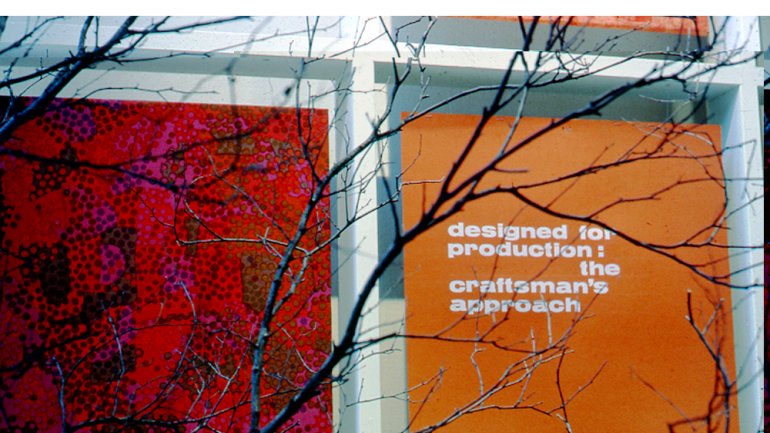Remembering: Eva Zeisel
Ceramic artist and industrial designer Eva Zeisel died on Friday in New City, New York. She was 105. Among her many accomplishments, the Hungarian-born Zeisel, who emigrated to the United States in 1938, is perhaps best known for her organic, warm approach to modernism, as exemplified by the gentle curves of her beloved 1940s and '50s dinnerware designs.
Zeisel, "along with designers like Mary and Russel Wright and Charles and Ray Eames, brought the clean, casual shapes of modernist design into middle-class American homes with furnishings that encouraged a postwar desire for fresh, less formal styles of living," observes William L. Hamilton for the New York Times.
Her famous all-white Museum tableware line, jointly commissioned by Castleton China and the Museum of Modern Art, was unveiled in 1946 in an exhibition at MoMA - its first solo show devoted to a female designer. In the early 1950s, Zeisel participated in the museum's annual "Good Design" exhibitions, organized by Edgar Kaufmann Jr. and presented in conjunction with Chicago's Merchandise Mart.
She taught at the Pratt Institute in the 1940s and '50s, notably bringing ceramics into the fold of industrial design. "The American craftsman has a very definite place as a contributor to improving the level of quality production, in addition to his more accepted role as an influence through his personal work as an artist-craftsman," Paul J. Smith wrote in the catalog for the 1964 exhibition "Designed for Production" at the Museum of Contemporary Crafts (now the Museum of Arts and Design). There Zeisel's work was shown alongside fellow era-defining artists, designers, and craftspeople, including Art Carpenter, Jack Lenor Larsen, Jere Osgood, and John Prip. (See more exhibition photos in the ACC Library Digital Collections.)
In 2006, the Mingei International Museum in San Francisco presented "Eva Zeisel: Extraordinary Designer Craftsman at 100," an ambitious retrospective of her work curated by Joyce Corbett. "Here is lyrical, sinuous, sometimes whimsical work that is the unfragmented creative expression of one human being - head, heart and hands, made available to a large public by machine production," the museum asserted. "In this, Eva Zeisel is a most important exponent of mingei principles for the machine age." Zeisel never stopped working, continuing to design throughout this past decade; her newest line of glass lamps is still be released.
Zeisel's aesthetic and approach to making have left a permanent imprint on this field, so as we mourn her departure, we celebrate her life. "If you try to do something perfect, I think this is the last time you do anything," Zeisel told National Public Radio several years ago. "If you feel it, this is you have now reached perfection. There can't be anything beyond it."

